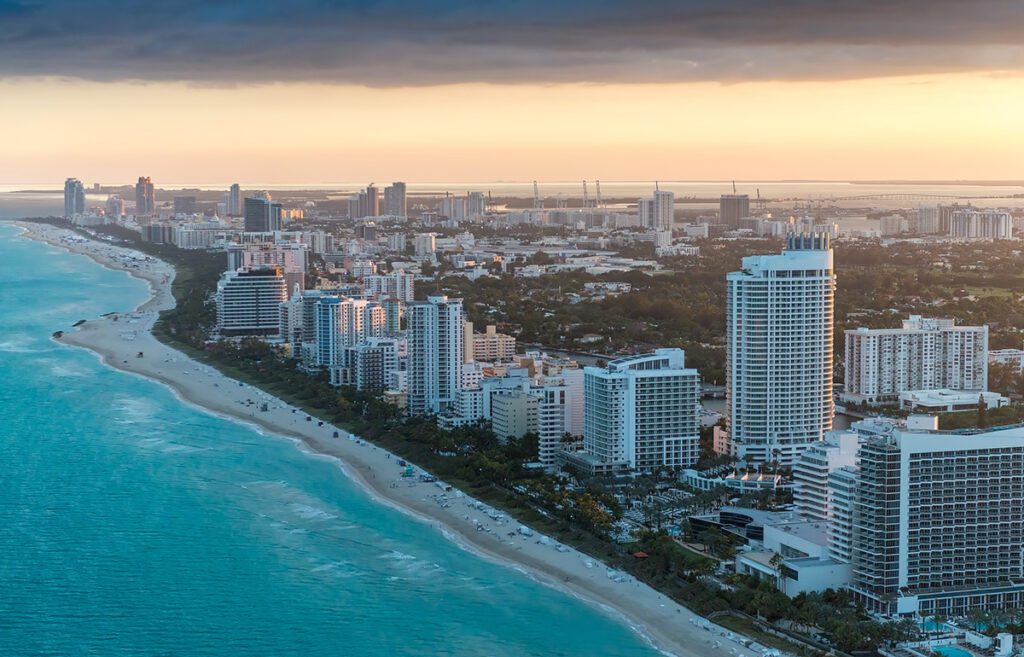Florida Supersedeas Bonds

What Are Florida Supersedeas Bonds?
While a client can file an appeal without a supersedeas bond, the bond stays the enforcement of a judgment while the case is on appeal. In Florida, a supersedeas bond ensures that the judgment creditor will get paid if the appeal is unsuccessful.
In Florida, the supersedeas bond needs to be issued through a surety company authorized to do business in the State of Florida for the bond to be deemed good and sufficient. If you’re an attorney handling your client’s case in Florida, here are the underwriting requirements and more for your client to secure a supersedeas bond.
Florida Supersedeas Bond Amount Requirements
The Florida Rules of Appellate Procedures, Rule 9.310 Stay Pending Review, outlines the requirements for a supersedeas bond. Here are a couple of highlights to be aware of:
- The bond amount must be equal to the principal amount of the judgment plus twice the statutory interest rate of said judgment, costs, attorney’s fees, damages, and other conditions imposed by the court;
- The bond must be issued by a surety company authorized to do business in the State of Florida;
- The lower tribunal has jurisdiction to determine the sufficiency of the supersedeas bond.
The judgment debtor can also stay the enforcement of judgment through a cash deposit with the lower tribunal. However, there are options that the client can explore by going the supersedeas bond route, where they can earn interest on the cash in lieu of depositing it with the court.
Florida Statute 45.045 limits the amount of a supersedeas bond to $50 million for each appellant. This amount is adjusted yearly based on the Consumer Price Index (CPI).
There are exceptions to this cap, and those are for certified class actions subject to Florida Statute 768.733. In these types of cases, the supersedeas bond amount required shall not exceed $100 million.
Florida Statute 45.045
45.045 Limitations on supersedeas bond; exception.—
Florida Statute 768.733
768.733 Bonds in class actions; limitations.—
(1) In any civil action that is brought as a certified class action, the trial court, upon the posting of a bond or equivalent surety as provided in this section, shall stay the execution of any judgment, or portion thereof, entered on account of punitive damages pending completion of any appellate review of the judgment.
(2) The required bond or equivalent surety acceptable to the court for imposition of the stay shall be the lower of:
(a) The amount of the punitive-damages judgment, plus twice the statutory rate of interest; or
(b) Ten percent of the net worth of the defendant as determined by applying generally accepted accounting principles to the defendant’s financial status as of December 31 of the year prior to the judgment for punitive damages;
provided that in no case shall the amount of the required bond or equivalent surety exceed $100 million, regardless of the amount of punitive damages.
(3) If, at any time after notice and hearing, the court finds that a defendant who has posted a bond or equivalent surety pursuant to subsection (2) is purposefully moving assets with the intent to avoid the punitive-damages judgment, the court shall increase the bond or equivalent surety to the amount determined pursuant to paragraph (2)(a). If the defendant does not post the additional bond required by the court, the stay shall be revoked.

Who Needs a Supersedeas Bond in Florida State Cases?
Aside from judgments against most public entities, judgment debtors are required to post a supersedeas bond or other security to prevent judgment execution during the appeal.
Here are some of the cases that may require supersedeas bonds in Florida courts.
- Contract Disputes
- Class Action Lawsuits
- Personal Injury Lawsuits
- Property Disagreements
- Business Litigation
- Employment Law Disputes
- Product Liability Claims
- Intellectual Property Conflicts with Monetary Awards
- Toxic Tort Litigation
- Domestic Relations Cases involving property division, alimony, or child support (click here to read our article on Appeal Bonds in Family Law Cases)




Florida Supersedeas Bonds Underwriting Requirements
A supersedeas bond functions similarly to an extension of credit. It ensures that the judgment debtor will pay the judgment to the judgment creditor if the appeal is wholly or partially unsuccessful. Unlike traditional insurance, which absorbs financial losses, a supersedeas bond requires the appellant to reimburse the surety company if the appeals court affirms the trial court’s decision and the surety ends up paying a claim on the bond.
Since most judgments are not reversed on appeal, there is a high likelihood that the surety will receive a claim on the supersedeas bond. Given this high probability of a claim, surety companies will often require collateral equal to the full bond amount before issuing a Florida supersedeas bond.
Collateral Options for Supersedeas Bonds
To secure a supersedeas bond, appellants may provide collateral in various forms, including the following:
- Cash: This is the fastest and most straightforward method for securing a supersedeas bond. Appellants can also potentially earn interest on their cash during the appeal.
- Bank Letters of Credit: These are a financial guarantee issued by a bank to a surety, which confirms availability of funds upon demand up to a stated amount.
- Real Estate: Residential and commercial properties, including single-family homes, multi-family units, office spaces, industrial facilities, and retail properties.
- Marketable Securities: These include non-retirement brokerage accounts holding publicly traded stocks and bonds pledged to a surety as collateral
Exceptions to Collateral Requirements
Certain high-net-worth appellants with substantial liquidity relative to the bond amount may qualify for an appeal bond without full collateral. This may include:
- Publicly traded companies
- Banks and financial institutions
- Insurers
- Large private firms
- Individuals with significant liquid assets
FAQs
How Much Does a Florida Supersedeas Bond Cost?
A Florida supersedeas bond cost is determined by the premium rate set by a surety company, which is generally between 0.3% to 4% depending on several factors such as:
- The size of the supersedeas bond
- The type of collateral provided, if required
- The financial strength of the appellant relative to the bond amount, if the bond is being considered without collateral
The bond premium is charged yearly until the surety’s liability under the bond is fully released. If the bond is exonerated midterm after the first year’s renewal, the client will receive a prorated return premium from the surety company.
Best Practices for Posting a Supersedeas Bond Through a Surety Bond Provider
Securing a supersedeas bond in Florida can be a complex process. Following best practices and having an experienced appellate bond specialist working with you and your client can help simplify this process and ensure a smooth and efficient experience:
- Contact a surety bond agent early. This advantage helps the client explore all options and ensure they can file the supersedeas bond without delay.
- Ensure attorney involvement. Attorneys are critical in confirming the bond amount based on the jurisdiction’s requirements and parts of the judgment being bonded, updating the surety company on the deadline to file the bond, and reviewing the bond form to ensure it conforms with State or local rules.
- Choose the right surety bond agent. You and your client can choose the right surety bond agent by interviewing multiple professionals and choosing one with a strong track record of experience and who specializes in Florida supersedeas bonds.
Read our guide, “The Biggest Mistakes Made with Appeal Bonds,” to learn more.
Why Choose CSBA for Your Client's Florida Supersedeas Bonds?
If your client needs to stay enforcement of a Florida judgment, they need a professional surety agent who can use a wide variety of collateral options and who has access to the right surety companies.
A Legacy of Expertise & Trust
Since 1984, CSBA has provided first-class service through our expertise in the appellate process, underwriting requirements, and the time frames required to secure a bond before the filing deadline. With our combined experience of 110 years, our surety bond professionals anticipate potential setbacks and take proactive steps to tailor options unique to your client’s financial situation.
Exclusive Surety Insurer Access & Creative Solutions
At CSBA, we leverage our extensive network of over 30 surety insurers for clients seeking to secure a Florida supersedeas bond. Our long-standing relationships with top-tier surety companies allow us to handle bond amounts of all sizes, whether it’s a $1 million supersedeas bond for a private individual or a $1 billion supersedeas bond for a publicly traded corporation.
With access to exclusive and semi-exclusive sureties we offer:
- Creative collateral solutions tailored to each client’s financial profile.
- Expedited underwriting to ensure a streamlined bonding process.
- Comprehensive support and guidance to attorneys and their clients throughout the supersedeas bond process.
Our specialized expertise and direct surety relationships set us apart, making CSBA the trusted choice to attorneys and their clients for supersedeas bonds in Florida cases.
How Long Does It Take to Secure a Florida Supersedeas Bond?
The time frame to secure a Florida supersedeas bond will depend on whether or not collateral is required.
If collateral isn’t required, the bond can be approved and issued within 24 hours in the most straightforward cases.
If the surety does require collateral, the type of collateral can affect the duration of securing a supersedeas bond. Cash collateral can be secured in a few days, while real estate collateral can generally take 30-60 days, depending on the property type and number of properties being posted.
Steps to Apply for a Supersedeas Bond
- Contact a supersedeas bond specialist to review your client’s bond requirement and start the process.
- The bond agent will discuss the various options with you and your client, and address any underwriting questions you or the client may have.
- Submit the following documents:
- Application
- Court complaint
- Judgment
- Notice of appeal
- CPA Audited Year-end Company Financial Statement if the client may be a candidate to qualify for an appeal bond without collateral.
- The surety agent will outline the supersedeas bond approval, and work closely with you and your client to efficiently finalize the bond.
Get a Free Quote for Your Client's Florida Supersedeas Bond Today
Deadlines for filing a supersedeas bond are normally very tight. Appellants and their attorneys will need a responsive and knowledgeable surety agent to navigate the process.
At CSBA, we make the supersedeas bond process smooth so you can focus on your case. Contact our supersedeas bond experts today to take the next step toward securing your client’s supersedeas bond.
